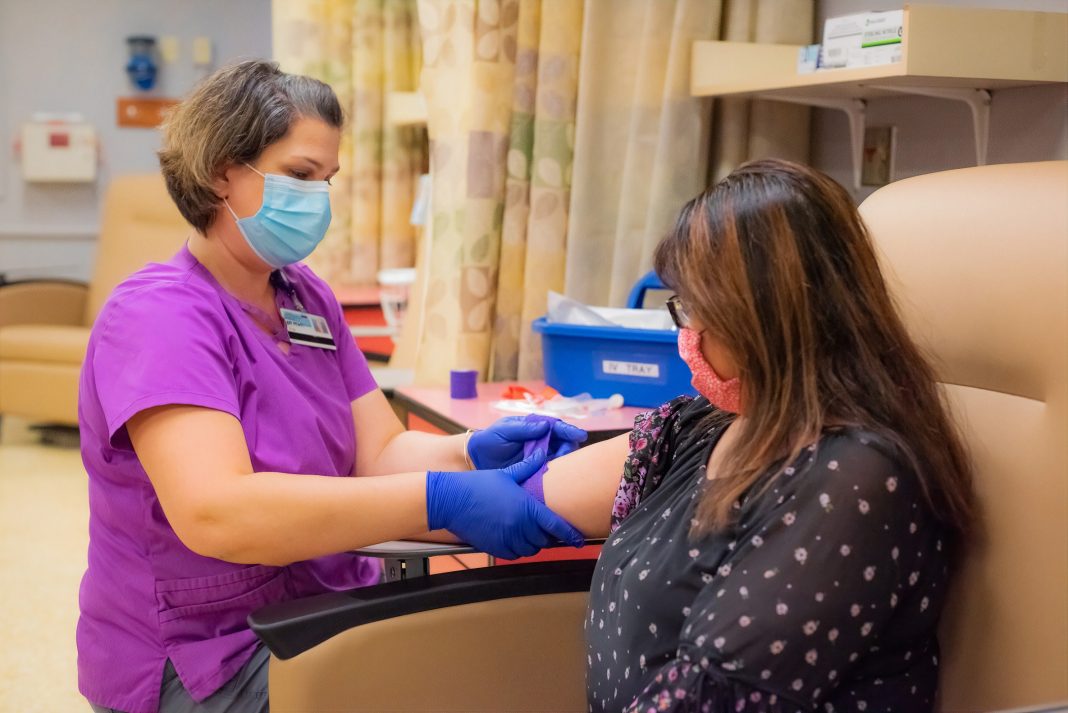Grays harbor hospital AIS-infusion-therapies At Grays Harbor Community Hospital (GHCH), their Ambulatory Infusion Services (AIS) department works hard to make your visits as stress-free as possible. Some illnesses, especially chronic illnesses, require ongoing treatment. You or a loved one may require frequent visits to receive transfusions, intravenous medication, monitor your health status through blood draws, or receive specialized injections. You can get the help you need right here on the Harbor with the AIS team at GHCH. Erin Swint, RN, is on the AIS team and dedicated to making routine treatment as low-stress as possible. Photo courtesy Grays Harbor Community Hospital “We see patients for a variety of treatments including intravenous infusions, blood transfusions, blood draws, injections, and management of vascular access devices such as mediports and PICC lines,” explains AIS Charge Nurse Erin Swint. “Medications we infuse include antibiotics and therapeutics to treat chronic illnesses like rheumatoid arthritis and Crohn’s disease.”
Not all visits to the AIS address chronic conditions but the majority are. The National Health Council reports that “Generally incurable and ongoing, chronic diseases affect approximately 133 million Americans, representing more than 40% of the total population of this country…that number is projected to grow to an estimated 157 million, with 81 million having multiple conditions.”
“Our patients see us routinely for treatments and we may see them daily, weekly, or monthly,” says Swint. “We provide anywhere from 100 to 200 treatments per month and sometimes more.” Come relax and listen to music, read a book or surf the web while skilled nurses take amazing care of you. Photo courtesy Grays Harbor Community Hospital Their staff works with a patient’s primary care physician, hospital team, or nursing home caregivers on this outpatient process. “The care we provide is highly specialized and requires skilled nursing,” she continues. “Our expertise lies in giving medications and treatments that are usually given in the hospital, while allowing people to live at home and even continue working. Some people need short-term care that bridges the gap from hospital admission to full recovery at home, while others need specific management of severe chronic illness.”
Appointments vary from 30 minutes to 6 hours, depending on the medication used, but patients can read or use the site’s wi-fi from the comfort of a chair or bed. All care is uniquely tailored to the individual. The department staffs two nurses per shift and are always happy to answer […]
